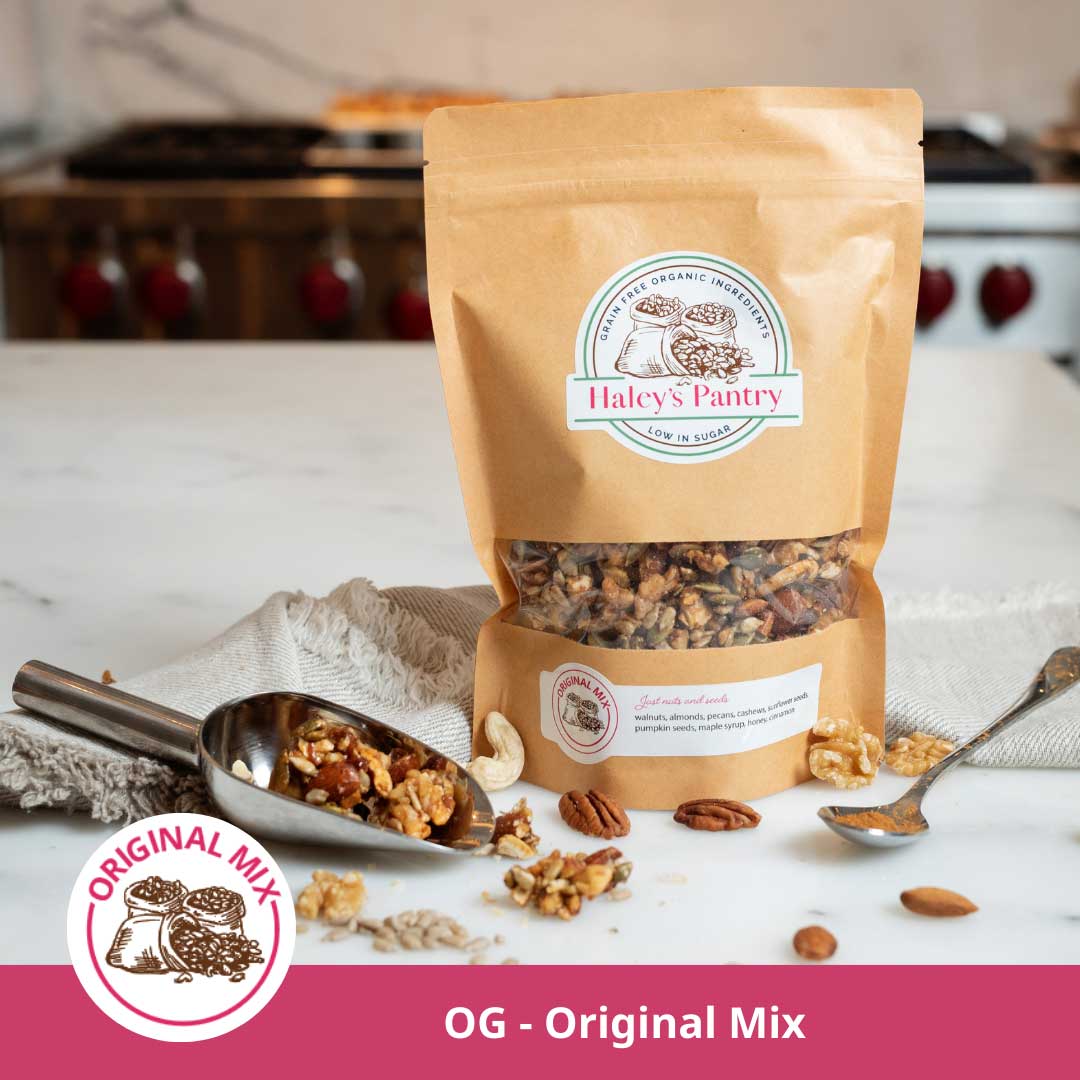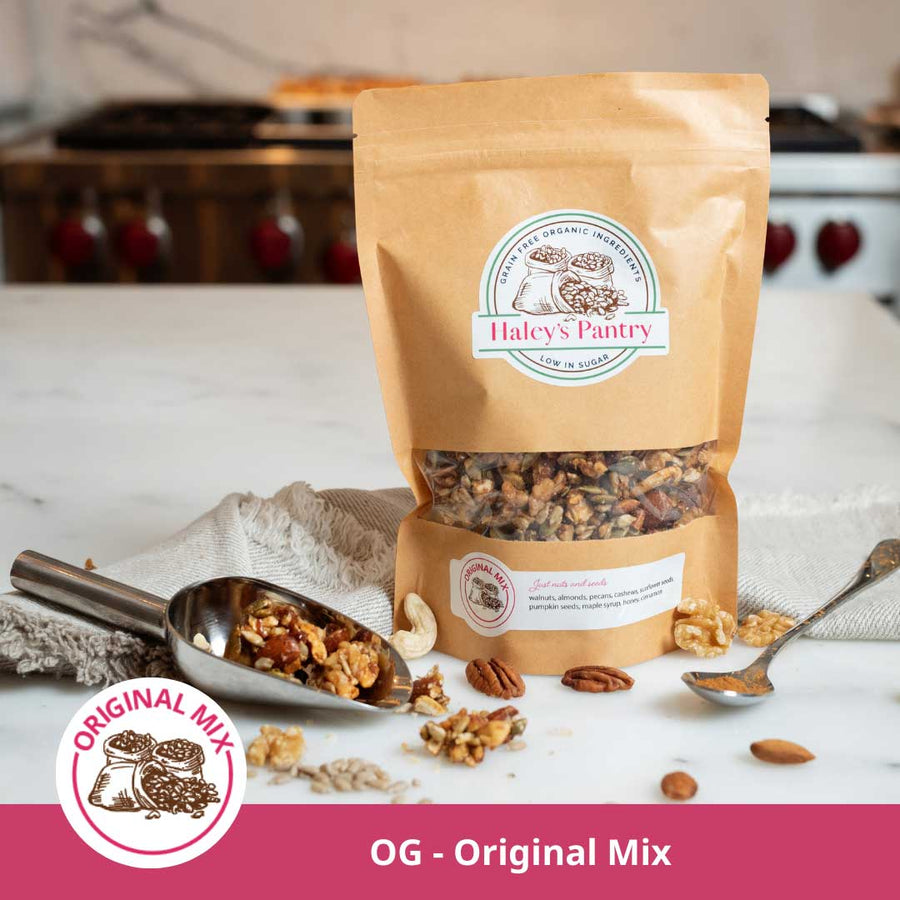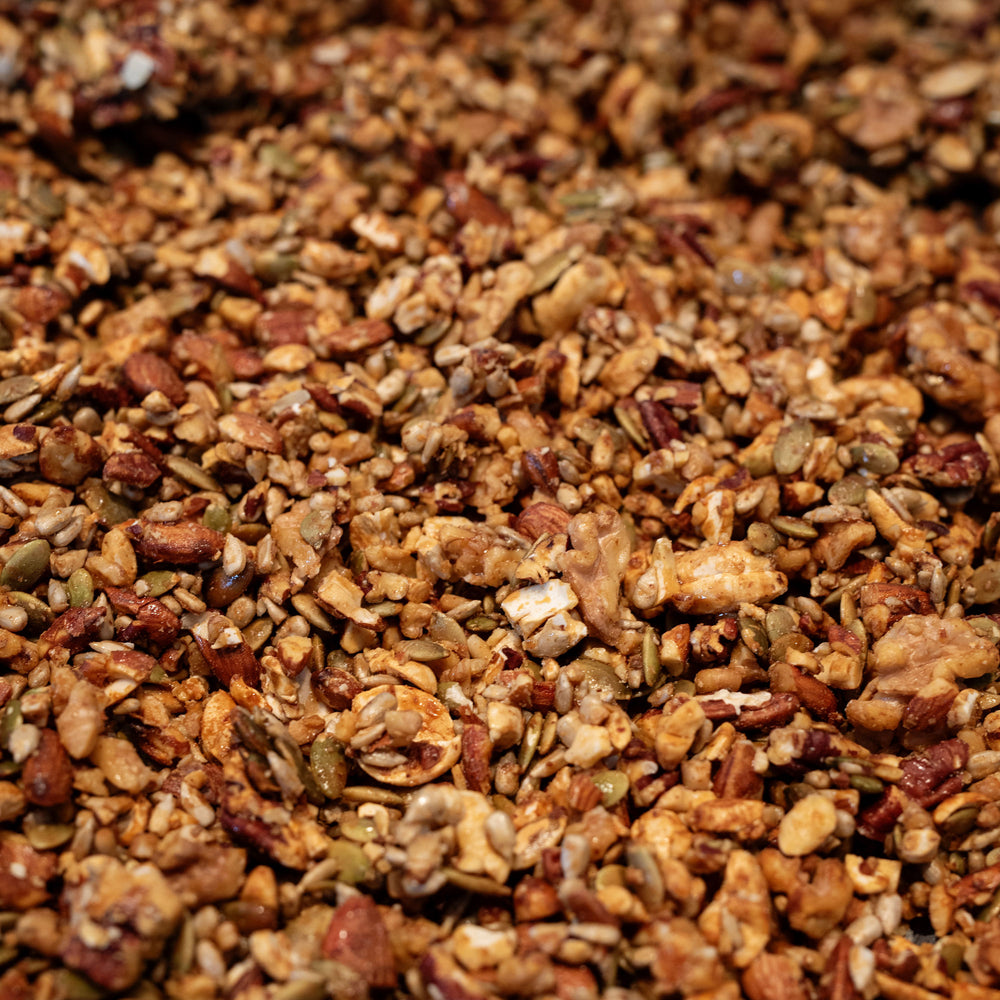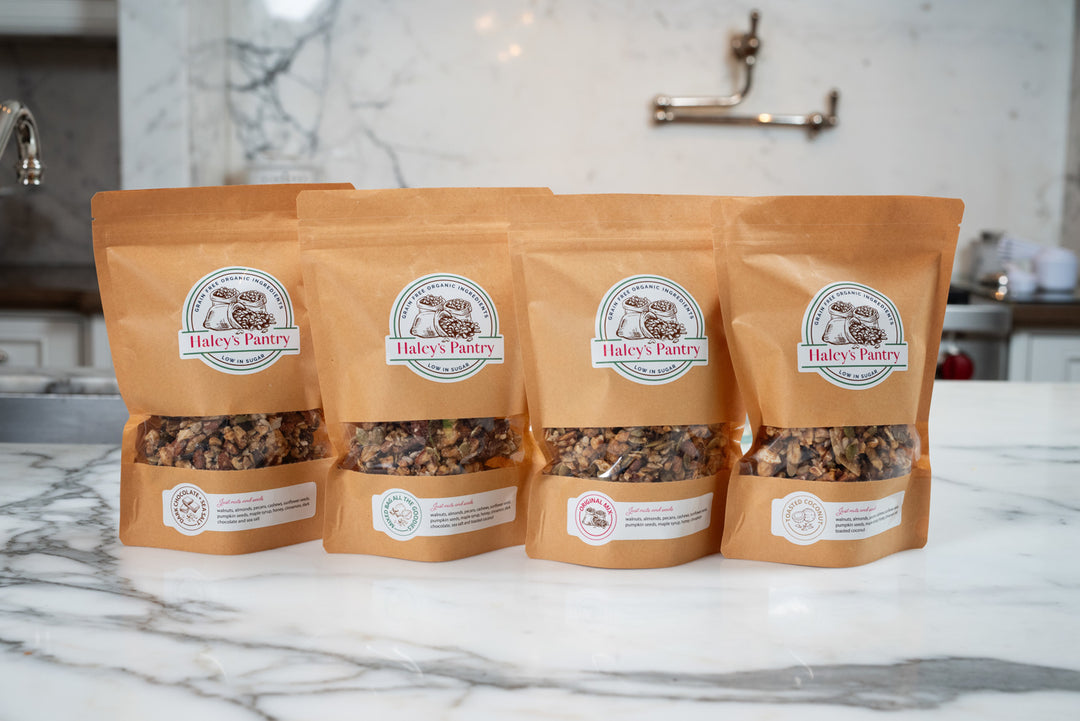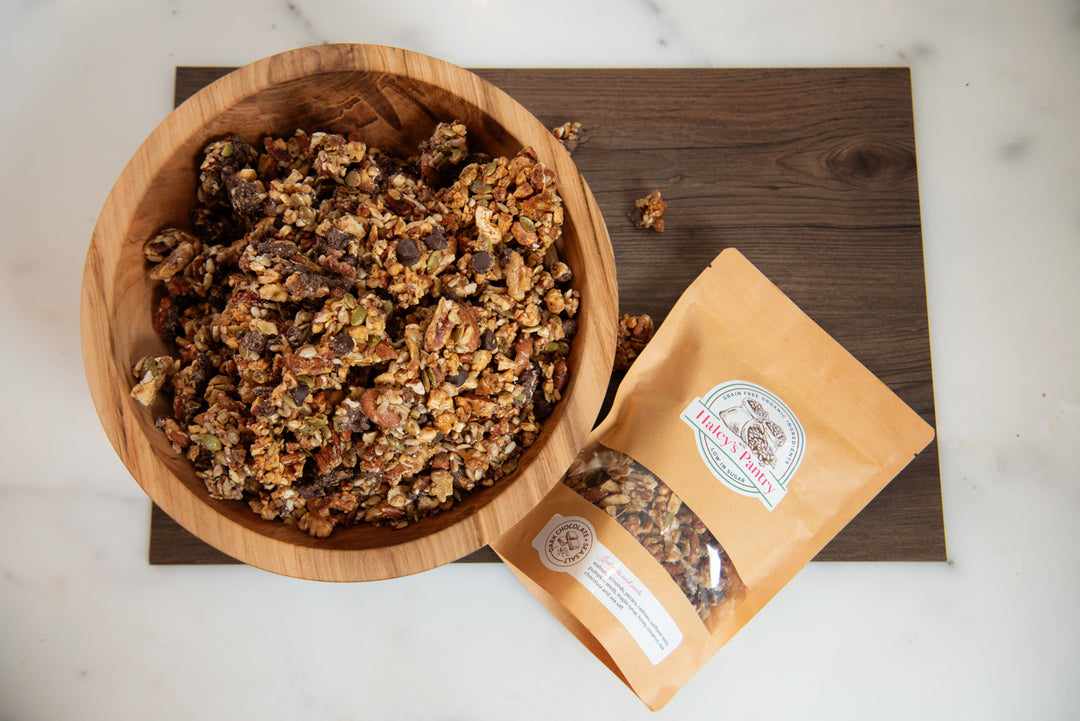How to Incorporate the Budwig Protocol into your everyday life: Foods, Tips, and Health Benefits

Since writing my first post about the Budwig Protocol diet, I've received many questions about how to incorporate it into everyday life and how it can support overall health. This second part will dive deeper into what to eat, what to avoid, and the lifestyle practices that enhance the benefits of the Budwig diet.
Fiber-rich foods are a cornerstone of the Budwig Protocol, and incorporating them into your diet is essential for supporting digestion, reducing inflammation, and improving overall gut health. Fruits and vegetables, naturally high in fibre, help regulate blood sugar levels and promote satiety. In addition to fruits and veggies, sprouted grains and seeds, such as amaranth, buckwheat, millet, rye, and rice, are also highly recommended. These grains offer a variety of essential nutrients and are easier to digest, which aligns with the core principles of the Budwig diet.
Along with these fibre-rich foods, here's a list of other items allowed on the Budwig Protocol:
- Sprouted grains and sprouted seeds
- Whole grains like brown rice, quinoa, and barley
- Hard cheeses rich in Vitamin K2, such as brie, goat cheese, gouda, and Jarlsberg, from naturally grass-fed herds
- Healthy oils, especially cold pressed flax seed oil
- Nuts and seeds - (we love Haley's Pantry granola)
- Fermented foods like pickles, kimchi, and sauerkraut
- All fruits and berries
- Fresh herbs
- Vegetables, either raw or steamed
- Green tea (any amount) and black tea (only occasionally)
On the flip side, there are several foods to avoid while following the Budwig Protocol. Refined sugar, processed foods, and alcohol are all harmful and should be excluded from your diet. Seed oils, such as canola, sunflower, and corn oil, should also be avoided due to their inflammatory properties. Highly processed grains and products containing artificial additives are to be eliminated. While coffee and tea are generally discouraged, enjoying them in moderation is okay if the rest of the diet is followed closely.
Adopting a healthy lifestyle and eating clean are vital parts of the Budwig Protocol. Daily exercise, adequate sleep, and spending at least 20 minutes outdoors to boost vitamin D levels—especially during winter—are all recommended. Vitamin D plays an essential role in strengthening the immune system. Combined with a clean diet, this lifestyle can help lower the risk of cancer, heart disease, diabetes, autoimmune diseases, and skin conditions.
I'm not an expert on the Budwig Protocol, but my husband and I started following it after his cancer diagnosis because we were willing to try anything to help him heal. Our doctors didn't recommend it; I came across the diet during my research on cancer treatments. While there isn't scientific proof that it's effective, we've stuck with it for eleven years, and it works for us. We mostly eat the same foods daily, making it simple and routine. When we go out, we treat ourselves, but we stick to the plan at home. My husband has been healthy all these years, and though we don't know for sure, we believe this diet plays a part in that. I love sharing valuable information with others because you never know who might need it. Even if it only reaches one person, making a difference in their life is incredibly rewarding. Sometimes, the slightest bit of knowledge can have a significant impact, and you never know when it might change someone's life for the better.
xo,
Haley
